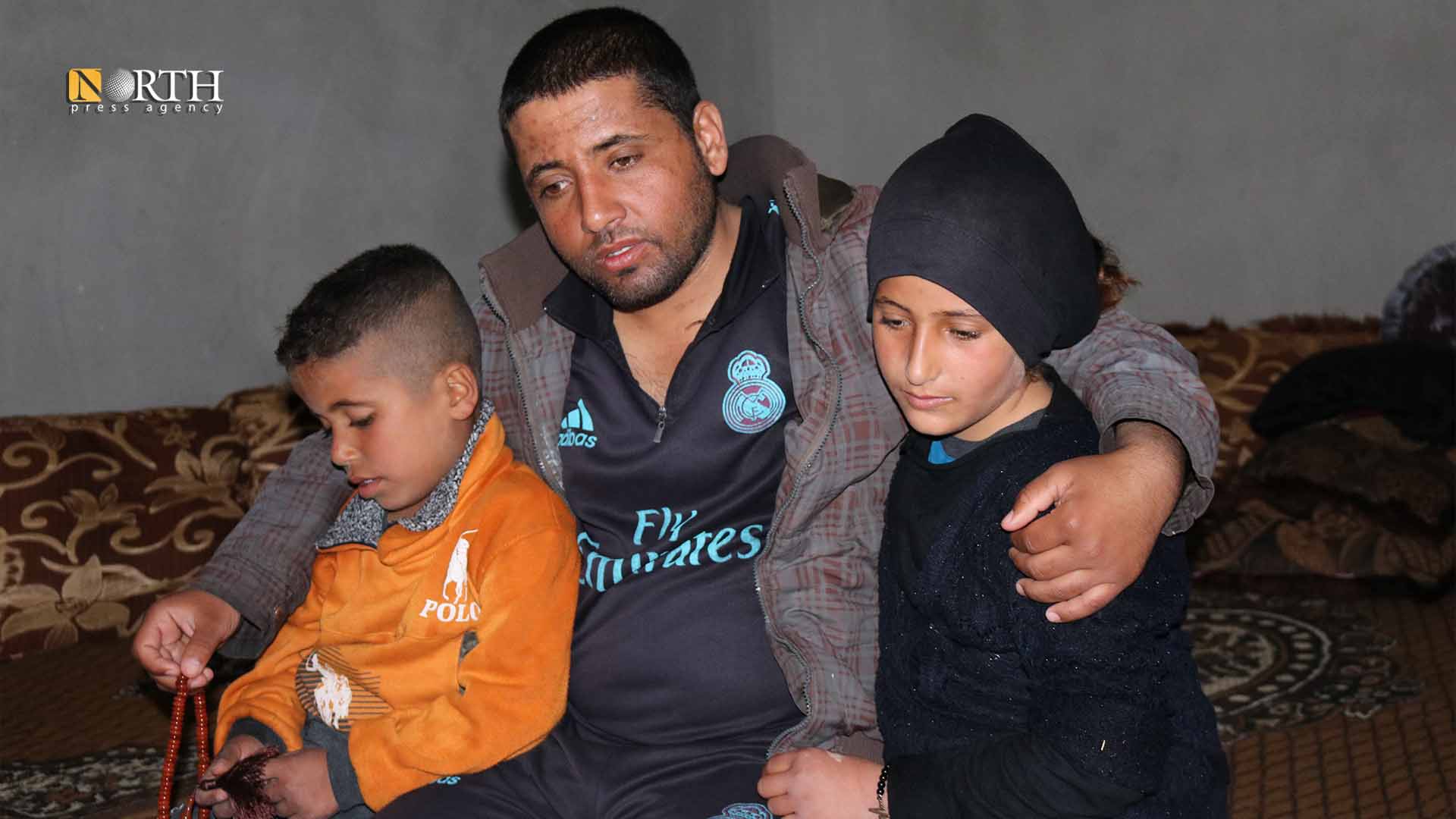HASAKAH, Syria (North Press) – Saleh al-Khdeir, nicknamed Sofy, from the eastern countryside of Shaddadi, south of Hasakah in northeast Syria, has been living as a blind man for over a year after a medical malpractice caused him lose sight.
Al-Khdeir, 31, lives in a house next-door to his parents’ in the village of al-Bajdali. Traces of poverty and anguish are pretty clear on him.
Diabetes prevented al-Khdeir from living an energetic life like other youth for fifteen years ago.
Over 15 years, al-Khdeir suffered unimaginable pains in the joint. He used to feel numbness. Soon after, he lost weight gradually and he constantly felt hungry and thirsty.
To deepen his suffering more, his cuts were not healed easily and his heart frequently beat fast. Al-Khdeir, a father of two, was concerned he might get hurt and would not be recovered.
Al-Khdeir’s suffered mental exhaustion, he always felt extreme tiredness even though he did not do any efforts. Later, he suffered skin infections.
Multiplications of the disease
Al-Khdeir coped with his new situation, yet his immune system weakened year by year making him susceptible to several illnesses.
Then in early 2019, his legs joints swelled more and became unable to work.
After that, hemorrhage in his eye caused a partial loss of vision which was already blurred because of diabetes.
Recurrent hemorrhage of the retina and of the vitreous damaged them and so the retina detached.
Al-Khdeir refused to give up. He travelled to Damascus for treatment. A doctor told him he has a bad condition (of the eyes) and that he needed several surgeries for the eyes.
He did underwent five surgeries between 2019 and 2020.
“The operations succeeded and I could see partially with my left eye once again,” al-Khdeir said.
He was so enthusiastic, therefore, he decided he would do the sixth one in order to get back his full vision.
Disappointment
On a black bed with white sheets, al-Khdeir lied inside the surgery room ready for the sixth operation. He was now an experienced man in the operations despite surgical anxiety was still there somewhere in his heart.
Unfortunately, something unexpected happened. The doctor committed a medical mistake and so an acute hemorrhage was caused to the retina.
Al-Khdeir was totally shocked. Years after treatment with insulin therapy, deprivation of many kinds of food, struggling to secure money for purchasing the medication, he feels helpless and powerless in front of his destiny.
A doctor, on condition of anonymity, told North Press that al-Khdeir’s health situation is “critical”. He has retinal atrophy.
“The patient desperately needs constant check and to be placed under supervision. Medicines must be given to him to improve the function of the retina,” the doctor said.
The doctor told al-Khdeir that he needed emergency laser therapy, yet al-Khdeir’s dire economic condition prevented him do it as one session of laser therapy costs 300,000 Syrian pounds (about $80).
The doctor did not determine number of the laser sessions al-Khdeir needs. However, the doctor told him there was chance he could get back partial vision.
Currently, al-Khdeir sustains on the aid “the good people”, as he described them, offer to him.
“My siblings, who already endure difficult conditions, also give an aid,” al-Khdeir added.
One of al-Khdeir’s brother is a student at Damascus University, the second, a freelancer, has got a family to sustain and the third brother is only 14 years old.
Al-Khdeir registered his name in a charity located in Hasakah city to be granted some humanitarian assistance, but in vain.
The city where he lives has got no humanitarian organizations.
“I feel bad whenever I see my brother like this and I cannot provide him any assistance because I have difficult economic situation,” al-Khdeir’s brother Aref, told North Press.
Holding a stick in one hand and his daughter’s hand with the other, al-Khdeir hopes he could see again and hopes the situation of his children is considered because they live below the poverty line.

